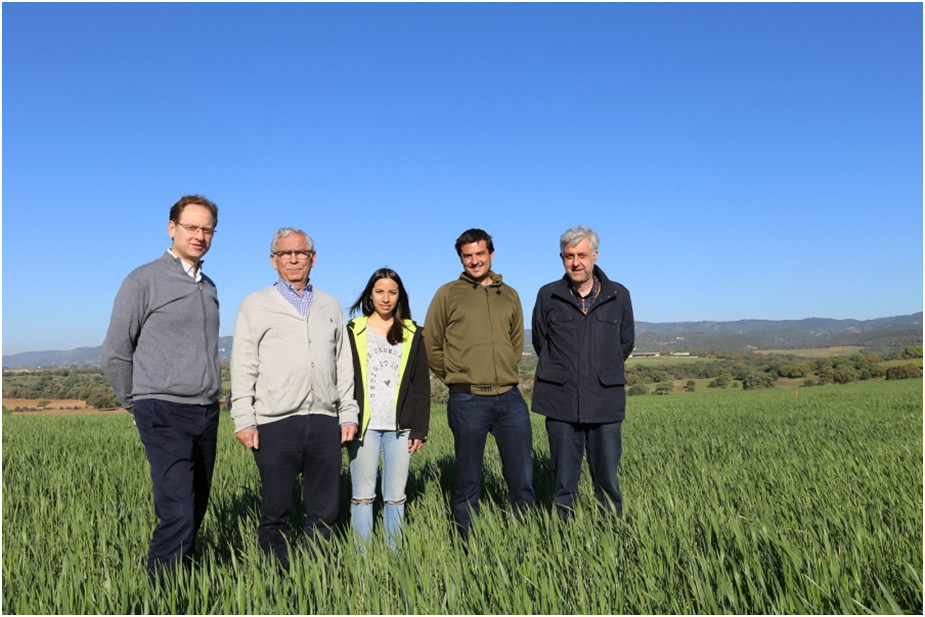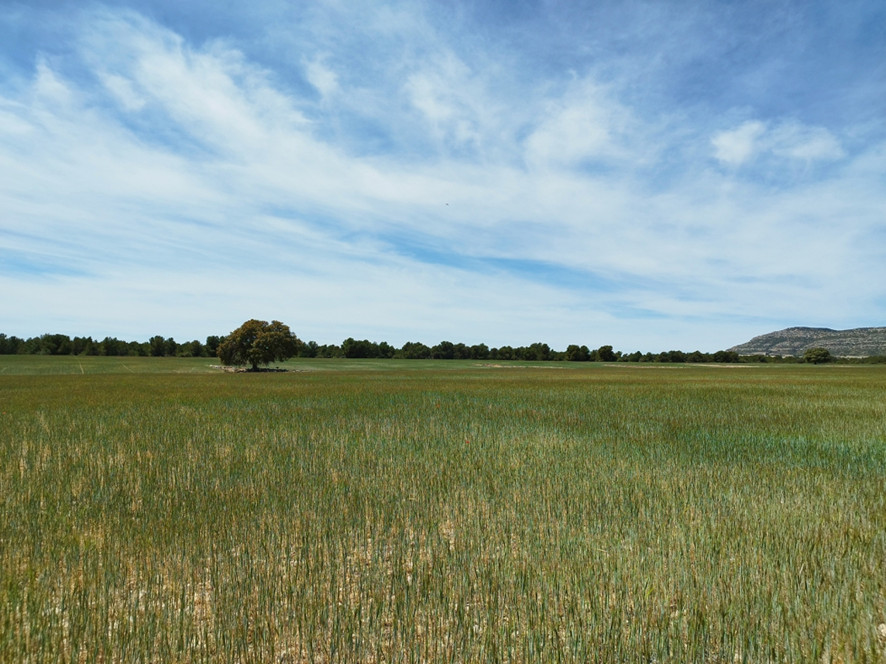The LIFE Agromitiga project studies how to calculate the carbon footprint of agricultural production and the capacity of Conservation Agriculture to reduce it

New formulas to sequester CO2
2020-03-08
The Climate Farmer Network
2020-03-25The LIFE Agromitiga project studies how to calculate the carbon footprint of agricultural production and the capacity of Conservation Agriculture to reduce it
In an era of awareness about problems caused by climate change, many of the citizens begin to think about carbon footprint of the food served on their tables or of the products that they use in their daily life, understanding the carbon footprint as the overall amount of greenhouse gases emitted directly or indirectly in the production of these elements.
Although the energy expended in production or the kilometers traveled by the products are taken into account, the international standards that measure the carbon footprint ignore issues such as the way in which the products generated by agriculture have been cultivated. The emission of greenhouse gases will be different depending on the agricultural techniques and the amount of inputs used to achieve them.
In order to find a solution to this lack of information, the LIFE Agromitiga project "Development of climate change mitigation strategies through carbon smart agriculture" was born, coordinated by the Spanish Association of Conservation Agriculture.Living Soils and in which the research group of the University of Córdoba "Mechanization and Rural Technology" works. It is led by researchers Jesús A. Gil Ribes, Gregorio Blanco Roldán and Emilio J. González Sánchez, and Francisco Márquez García, from ETSIAM.
The two objectives that define this European project are, on the one hand, the generation of coefficients that can be used by the standards that measure the carbon footprint (such as the ISO 14067 standard). They would allow to quantify the impact of agricultural practices on the generation or mitigation of the carbon footprint. On the other hand, the establishment of management systems based on Conservation Agriculture that enhance the "sequestering power" of the soil in the Mediterranean basin for herbaceous and woody crops. Therefore, all the involved energy is measured according to: the type of soil management (conventional or conservation), inputs, machinery, etc.
Using this methodology, it will not be only possible tolearn more about the carbon content in agricultural soils, but also to demonstrate the capacity of Conservation Agriculture as a mitigator of greenhouse gas emissions and promote awareness of this potential among the agricultural community, but, above all, among the political and technical managers who are in charge of establishing rules and regulations.
At the beginning of the project, researchers have characterized the main crops and the main edaphoclimatic zones in Andalusia, establishing a network of 35 farms in 5 defined zones. This will allow to find similar areas in the rest of the countries of the Mediterranean basin involved in the project (Italy, Greece and Portugal). The UCO research group has the results for a decade of Conservation Agriculture experiences on the experimental farm in the Rabanales University Campus, providing data on how organic matter evolves, the efficient use of inputs and the control of adventitious herbs.
Another important task of the project will be the development of a technological tool that would allow to evaluate and quantify the increase in carbon using Conservation Agriculture practices. It would serve as the basis for the development and monitoring policies related to climate change and emissions trading. Through the development of this tool, which will have the format of a mobile application, the project will provide farmers with information about the state of their soils and how to convert them into healthier soils with more mitigating power. Moreover, they will benefit from the optimization of the inputs that are produced thanks to the improved soil quality that is generated with the Conservation Agriculture system, increasing its economic sustainability.
In four-year development of the project, in addition to the manuals aboutBest management practices and the applications that guide farmers on their way to 'low carbon' agriculture, CO2 capture coefficients will be generated. They can be used by Spain and other Mediterranean countries, respecting the Paris Agreement on Climate Change, the 2030 Agenda for Sustainable Development, or the CAP, so that those who must justify the fulfillment of these agreements have the necessary tools to develop and promote environmental policies on climate change and agriculture in the Union European based on scientific knowledge and interesting for society in general, and farmers in particular.
Source: UCC+i
This post is also available in: Español (Spanish)




